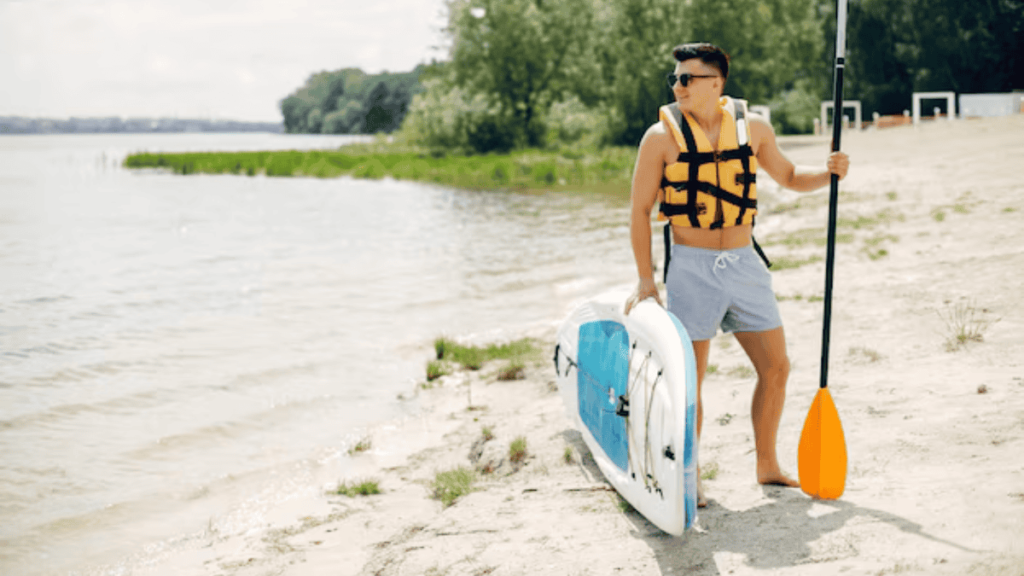In recent years, paddle boarding has surged in popularity. Whether for leisure, fitness, or adventure, it offers something for everyone. This growing trend makes starting a paddle board rental business an enticing opportunity for entrepreneurs. With the right planning and execution, a paddle board rental can be both a rewarding and profitable venture. In this article, we’ll walk you through the steps of building a successful paddle board rental startup.
Market Research
Before diving in, it’s essential to conduct thorough market research.
- Identify Target Audience: First, determine your potential customers. Tourists, local adventurers, and fitness enthusiasts all make excellent candidates for paddle board rentals. Tourists are often looking for short-term rentals, while locals may want more frequent or long-term rentals.
- Analyze Competitors: Look into the existing rental businesses in your area. What services do they offer? How do they price their rentals? What unique selling points (USPs) do they have? This analysis will help you carve out your niche and set competitive prices.
- Location Analysis: Your location is crucial. Ideally, choose a spot with high foot traffic, near a lake, river, or beach. A scenic location with easy water access will naturally attract more customers and boost your business.
Business Model
The next step in your paddle board rental business plan is deciding between a mobile or retail model.
- Mobile: A mobile rental business offers lower overhead costs and greater flexibility. You can transport your paddle boards to different locations based on demand. However, it requires a vehicle, and you’ll need to advertise your services well to attract customers.
- Retail: With a retail model, you’ll have a fixed location, which increases visibility and foot traffic. However, renting a physical space involves higher costs, and you may need permits from local authorities. This model is best suited for tourist-heavy areas where paddle boarders naturally flock.
Equipment and Inventory
Having the right paddle board rental equipment is vital to your business success.
- Paddle Boards: Stock a variety of boards to cater to different skill levels. Soft-top boards are ideal for beginners due to their durability and ease of use, while experienced riders might prefer epoxy hard boards for better performance. Inflatable boards are also popular, especially for yoga and fitness classes.
- Paddles: Opt for high-quality paddles, ideally made of carbon fiber. They are lightweight, durable, and provide a better experience for the customer. Cheap paddles may lead to dissatisfaction and even safety risks.
- Safety Gear: It’s essential to include safety gear with every rental. Provide personal flotation devices (PFDs) and ensure all renters wear leashes to prevent boards from drifting away in the event of a fall.
Legal Requirements

Operating a paddle board rental startup comes with legal responsibilities.
- Permits and Licenses: Check with your local authorities to determine the necessary permits for running a rental business. You’ll likely need both business licenses and permits to operate near water bodies.
- Insurance: Don’t overlook liability insurance. This protects your business from potential lawsuits in case of accidents or injuries. Ensure your policy covers all aspects of the rental process, from equipment usage to potential damages۔
READ ALSO: How to Create a Franchise Business Plan
Services Offered
Offering a variety of paddle board rental services can help you attract more customers and increase revenue.
- Rentals: Offer flexible rental options such as hourly, daily, or weekly rates. This allows you to cater to tourists looking for a quick paddle as well as locals who might want longer-term rentals.
- Lessons: Provide lessons for beginners. Not only will this service attract first-time paddlers, but it also creates an additional revenue stream. Plus, beginner lessons can enhance customer satisfaction and safety.
- Group Activities: Consider offering group activities like paddleboard yoga classes, fitness sessions, or guided tours. These services appeal to niche markets and add value beyond standard rentals.
Marketing Strategy
To grow your business, a solid paddle board rental marketing strategy is essential.
- Online Presence: Build a website that showcases your services, location, and pricing. Make sure to integrate social media platforms like Instagram and Facebook, where you can share photos, customer reviews, and promotions to attract new clients.
- Local Advertising: Flyers, posters, and partnerships with nearby hotels, resorts, and tourist offices can help you gain visibility among visitors to the area. Word of mouth from locals is also a powerful marketing tool.
- Customer Reviews: Encourage satisfied customers to leave positive reviews on platforms like Google and Yelp. Good reviews build credibility and encourage new customers to trust your business.
Staffing and Training
Hiring the right team is crucial to running a successful paddle board rental business.
- Hiring: Look for employees who are knowledgeable about water sports and can provide excellent customer service. Enthusiastic and friendly staff will enhance the customer experience and foster repeat business.
- Training: Ensure all employees are trained in water safety and customer service. Staff should know how to assist beginners, recommend the right equipment, and respond to any emergencies on the water.
Financial Planning

Solid financial planning is the backbone of any successful business.
- Initial Investment: Factor in the costs of equipment, permits, and marketing. Depending on your business model, you may also need to budget for rent and staffing.
- Revenue Streams: Your primary revenue will come from rental fees, but additional income can come from lessons and group activities. Offering different packages or membership options could also enhance your income.
- ROI Calculation: Estimate your return on investment by projecting your expenses and revenue over the first year. Consider seasonal fluctuations in demand and plan accordingly to maintain cash flow during slower months.
Conclusion
Starting a paddle board rental business can be a fulfilling and profitable endeavor. By conducting thorough market research, choosing the right business model, and offering a range of services, you’ll set yourself up for success. Proper legal planning, marketing, and financial management are also crucial elements. With the growing popularity of paddle boarding, now is an excellent time to turn your passion for the sport into a business.
FAQs
What legal requirements are necessary for a paddle board rental business?
You’ll need to secure the proper permits and licenses and ensure you have liability insurance.
What kind of paddle boards should I offer for rentals?
Stock a range of boards, including soft tops for beginners, inflatables for yoga, and epoxy hard boards for advanced paddlers.
How can I market my paddle board rental startup?
Create an online presence, partner with local businesses, and encourage customer reviews to build trust.
FOR MORE INFORMATION VISIT EXCLUSIVE TODAY






